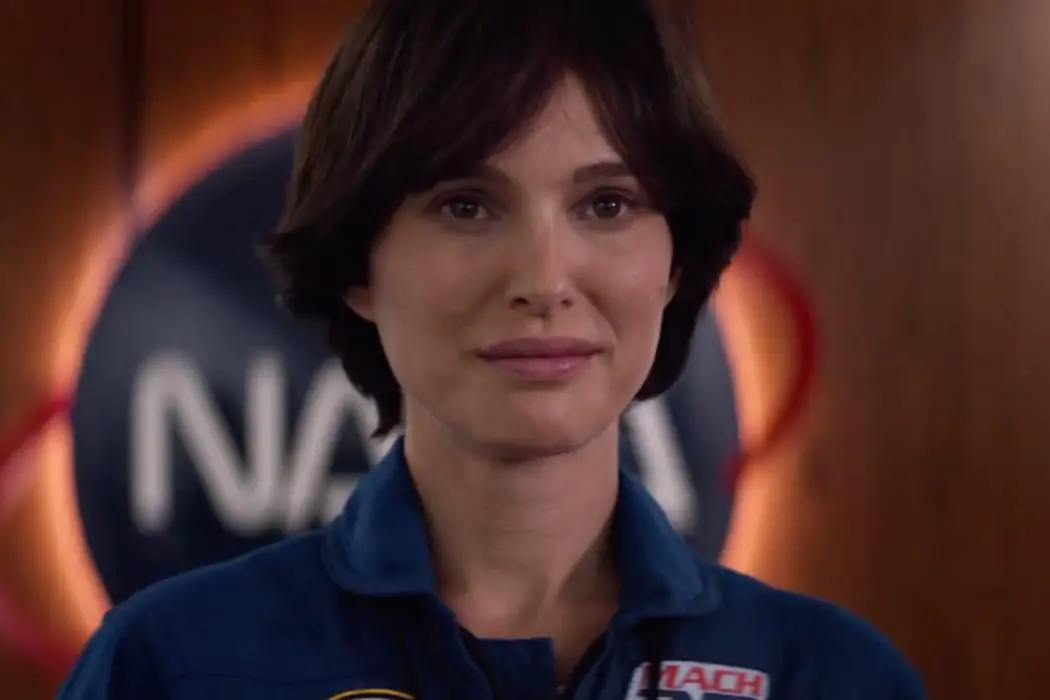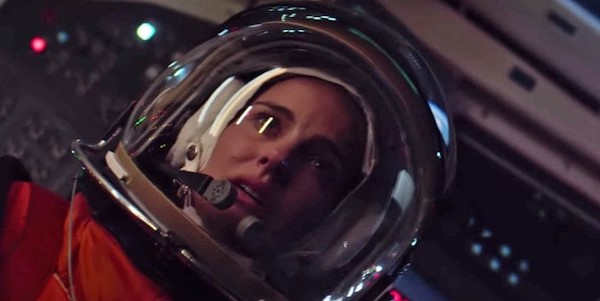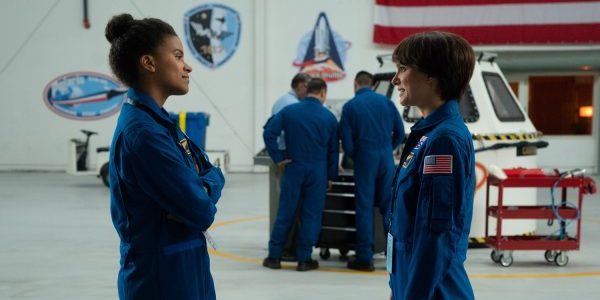LUCY IN THE SKY: A Disaster Of Cosmic Proportions

Movie lover & Los Angeles-based writer. BA in Film Criticism…
In the span of a few short years, Noah Hawley has made quite a name for himself in the realm of television. In 2014, he took on the unenviable task of adapting the Coen Brothers’ masterpiece Fargo into an anthology series, spinning new yarns of criminal activity in the chilly Midwest. This risky gambit paid off, as the results were incredibly successful, with Hawley delivering some of the finest seasons of entertainment, offering compelling storytelling and fantastic performances in this the gilded age of television.
Also intriguing was his adaptation of the Marvel Comic Legion into its very own series. Considering the gluttony of superhero properties we face on a day-to-day basis, Legion still managed to find an audience, standing out amongst the costumed crowd with its innovative narrative devices, dazzling visuals, and psychedelic atmosphere. I suppose it was only a matter of time before Hawley worked up the courage to tackle his own feature film.

The result is Lucy in the Sky, which is loosely based on the life of Lisa Novak, a NASA astronaut who was arrested for a bizarre attempted kidnapping case in 2007. Granted the opportunity to construct an intimate character study against the vast backdrop of outer space, the project seems to fall right into Hawley’s wheelhouse. Armed with a general knack for inventive storytelling and stunning visual flair, Hawley appeared to have every tool he needed to turn his dream of crafting a feature film into a reality.
But sometimes dreams can turn into nightmares. Misguided, misbegotten, and woefully miscast, Lucy in the Sky immediately reveals itself to be wildly out of Hawley’s control, who appears to be lost at sea with his directorial purposes. For his feature film debut, the director frequently aims for the cosmos, but finds himself plummeting towards earth with the grace of a malfunctioning satellite.
A Deficit of Style and Substance
In 2006, astronaut Lucy Cola (Natalie Portman) has just completed a lengthy space mission, returning to earth after months in orbit. Back in the real world, she shares a lackluster marriage with NASA analyst Drew (Dan Stevens), an amiable but otherwise comically nebbish man who needs Lucy to muscle open his jam jars at the breakfast table. Together, they’re raising Lucy’s niece, Blue Iris (Pearl Amanda Dickson), with occasional help coming from Lucy’s tough-talking grandmother (Ellen Burstyn), who offers crude pearls of wisdom to our protagonist.
While grounded for thirteen months to prepare for her next mission, Lucy finds solace in Mark (Jon Hamm), a fellow astronaut, igniting a love affair between the two. As Lucy gets closer and closer to her next mission, Mark eventually leaves her for colleague Erin (Zazie Beetz), another astronaut in training. Feel dejected, Lucy’s mind slowly unravels, finding the astronaut’s life spiraling out of control before she hits rock bottom.

Lucy in the Sky purports to be based on real events, but Hawley does not have much of a narrative framework to hang a story on. What he does have, however, is aspect ratios. To properly get into Lucy’s messy headspace, Hawley has opted to shift the size of the frame throughout the picture, sometimes during the middle of a shot. When Lucy explores the grandeur of outer space, she’s typically framed in a widescreen, 2.35 to 1 aspect ratio, adding scope to her life. When she’s trapped on the confines of planet earth, Hawley constricts the image down to the Academy ratio, 1.33 to 1, literally boxing in Lucy’s life with black pillar boxes on the side of the frame.
This is the first of many astoundingly miscalculated flourishes Hawley douses on the feature like a can of unleaded gasoline. The shifting black bars become an immediate distraction, often dancing across the frame in lockstep with character motion. The experience is less like an auteur stretching his creative wings and more like an insufferable junior film student who has discovered post-production editing tools for the first time in his life.
Picture Yourself Walking Out of a Theater
It’s not quite clear what Hawley’s true objectives are with Lucy in the Sky. The concept certainly has potential – there’s a recurring theme of mental illness, and Lucy’s reckless, almost suicidal behavior to prove she is the best at what she does hints at a far superior movie – but Hawley, who co-wrote the screenplay with Elliott DiGuiseppi and Brian C. Brown, does not know how to go about telling this story, rendering the entire proceedings dramatically inert.
At the front and center of Lucy in the Sky is Natalie Portman. Ensnared under a bad wig and forced to drawl her lines in an awful southern accent, Portman is all wrong for the part, failing to communicate any genuine emotion as Lucy’s mind gradually deteriorates. Hawley finds himself lost in close-ups of Portman’s face, but the actress fails to find a pulse, a fact that is hampered by the vague characteristics of the screenplay. Meanwhile, Hamm is aptly cast as the jock astronaut love interest, but the character is too one-note for him to inject any dimension into the role.

When all else fails, Hawley repeatedly returns to hackneyed butterfly symbolism, depicting Lucy’s neuroses as a cocoon of emotional turmoil, aching to finally blossom. Space sequences are brief and sold through iffy visual effects, and we’re even treated to a maudlin cover of the titular Beatles song, underlining how much of a wasted effort this entire enterprise has been.
Lucy in the Sky: Conclusion
For its final twenty minutes, Lucy in the Sky slips into undercooked thriller mode, detailing the real-life kidnapping attempt that drew national attention to the story in the first place. The dramatic shift is appreciated, but at a runtime of two hours, it’s too little too late. Lucy in the Sky is an absolute flatline, dragging to an anticlimactic ending. Hawley has proven that he’s got the goods in the past, but after such an epic misfire, he might do best to stay in television where he belongs.
What do you think? Does Noah Hawley have a future in directing movies?
Watch Lucy in the Sky
Does content like this matter to you?
Become a Member and support film journalism. Unlock access to all of Film Inquiry`s great articles. Join a community of like-minded readers who are passionate about cinema - get access to our private members Network, give back to independent filmmakers, and more.
Movie lover & Los Angeles-based writer. BA in Film Criticism & Media Theory from CSU Northridge. Unofficial Bond ally. Rhymes with “tequila.”












